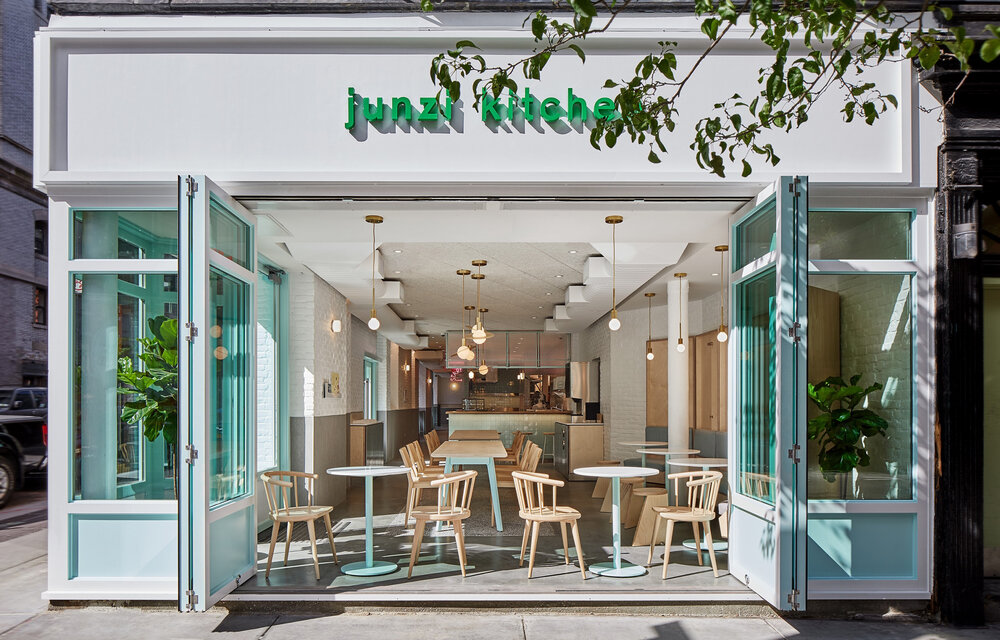In honor of Asian/Pacific Islander Heritage Month in the United States, we’re celebrating the diversity of cultures and histories within the Asian/Pacific Islander community (inclusive of non-Americans). As part of this month, we’ll be featuring customers who identify as part of this community and exploring the theme “Stories of Sustenance” as a way of interpreting how cultural bonds are shared and become strengthened from one generation to the next, particularly in a time of crisis.
We talked to four API restaurant owners about celebrating their heritage through food, and how they’re using their culinary skills to support themselves and others during the pandemic.
Gado Gado
Named after an iconic Indonesian salad dish, Gado Gado—which translates to “mix mix”—was inspired by Tom and Mariah Pisha-Duffly’s travels throughout Southeast Asia, and by Tom’s Chinese Indonesian heritage. Serving up creative dishes like blue crab curry and spiced coconut rice, the restaurant has become a go-to for many in the city of Portland. Gado Gado has always been inspired by the legacy of Tom’s hardworking grandmother, and recently launched a new initiative in her name: Oma’s Takeaway. Operating with a small team and with elevated safety and sanitation standards, Oma’s Takeaway has a rotating menu of “playful, comforting, and vibrant” dishes available for pick-up or contactless delivery.
Photo by Christine Dong
Junzi Kitchen
Founded by James Beard finalist Lucas Sin, Junzi Kitchen is a New York-based Chinese American restaurant with an intentionally unique menu. For Sin, the goal of Junzi Kitchen has always been to “show people that Chinese cooking is regional, diverse, and colorful,” and nothing reflects this mission more than the restaurant’s response to the pandemic. In addition to providing meals to frontline workers through its Share a Meal program, Junzi also launched Distance Dining, a contactless delivery service offering a “three course menu that addresses the relationship between Chinese cooking and other cultures.”
Distance Dining’s collaborative meals, which are made in partnership with other API restaurants, embody themes like Chinese-Vietnamese immigration history, and the intersection of traditional Chinese food with Filipino and Malaysian cooking. Pandemic or not, Junzi Kitchen is committed to offering people memorable, meaningful dining experiences—even if they can only be enjoyed at home for the time being.
Photo by Andres Orozco
Han Oak
Based in Portland, Han Oak is a family-run Korean American restaurant led by husband and wife duo Peter Cho and Sun Young Park. The recipes, work ethic, and community spirit of Han Oak—a name inspired by Hanoks, traditional Korean homes—are rooted largely in Peter’s childhood experience cooking traditional dishes with his family. “When I make dumplings for my diners, my mother and childhood memories are embedded in every fold,” he explains. While they’re closed due to the pandemic, Han Oak is offering gift certificates for customers to purchase, and partnering with Urban Gleaners, a nonprofit working to collect surplus food and redistribute it to communities in need.
Kopitiam
Born out of co-founders Kyo Pang and Moonlynn Tai’s shared desire to preserve the dishes and traditional cooking methods they grew up with, Kopitiam originally opened as a simple 4-seater Malaysian cafe on Canal Street in New York City. It’s since evolved into a destination for Nyonya cuisine—a hybrid of Chinese and Malay flavors, with some Portuguese, Dutch, and British influence. Though they’ve closed their physical dining space due to COVID-19, Kopitiam is refocused on takeout and delivery service and a newly revamped retail business.
Photo by Jean Schwarzwalder
This Asian/Pacific Islander Heritage Month, and every month, Squarespace is proud to support restaurant owners who are carrying forward culinary traditions, and shaping new ones.
Bring your restaurant online with one of our award-winning templates.
Looking to level up your restaurant’s website? Add reservations, takeout, events and more with Tock.



